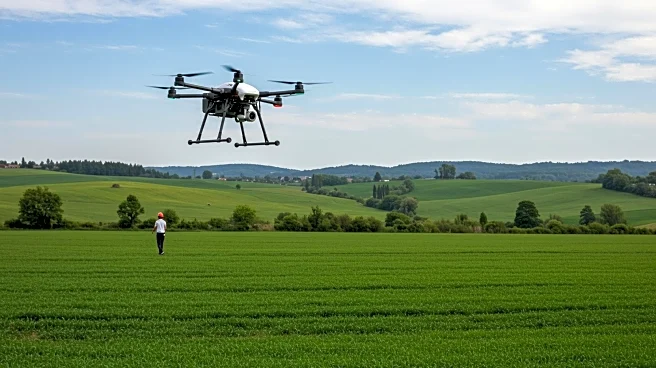What's Happening?
A report by Farm Credit Canada highlights that Canada captures only 2% of global farm tech investment, posing challenges for Canadian producers in adapting and competing globally. Despite an increase in farm cash receipts, Canadian farmers face geopolitical uncertainties and climate change impacts. The report warns that without increased research and technology spending, productivity growth will stall, and Canada will lose ground in global agtech leadership. Public investment remains the primary source of agricultural R&D funding, with Agriculture and Agri-Food Canada spending over $829 million in 2023. However, venture capital investment in Canadian agtech has declined, leaving innovators with fewer avenues to scale solutions.
Why It's Important?
The low level of investment in Canadian farm tech is significant as it affects the country's ability to compete in the global agtech market. Without sufficient funding, Canadian producers may struggle to adopt new technologies, impacting productivity and sustainability. The report suggests that increased private R&D spending and international collaboration could help bridge the innovation gap. Lessons from countries like the United States and Japan show that coordinated investment strategies can create competitive advantages, emphasizing the need for Canada to align innovation with industry priorities.
What's Next?
The report outlines several strategies for Canadian businesses to close the investment gap, including increasing private R&D spending, strengthening networks and hubs, and prioritizing sustainability. These measures could enhance farm incomes and improve the adoption of new technologies. Canadian agtech entrepreneurs are encouraged to focus on solutions with strong commercialization potential, while established agribusinesses should treat technology adoption as a core competitiveness strategy. The report calls for a more advanced approach to innovation and productivity in Canada's agri-food industry.
Beyond the Headlines
The report highlights the broader implications of Canada's investment shortfall in farm tech, including the potential impact on food security and economic growth. The emphasis on sustainability and innovation reflects a global trend towards environmentally responsible practices in agriculture. By addressing these challenges, Canada can strengthen its position in the agtech market and contribute to global efforts in sustainable agriculture.








